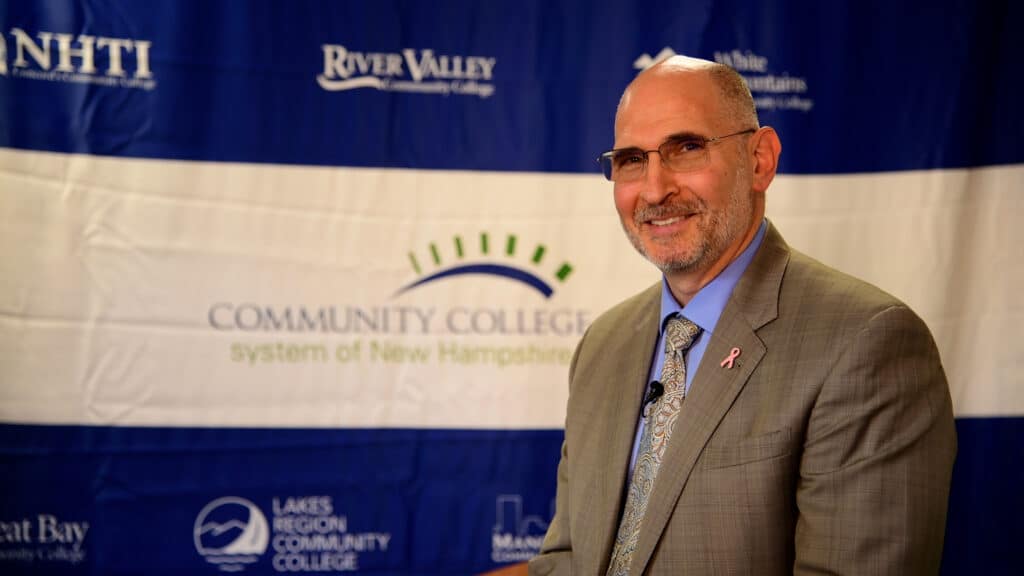
Dr. Mark Rubinstein’s first day on the job as Chancellor of New Hampshire’s Community College System, September 1, coincided with the first week of classes across the System’s seven colleges and to Rubinstein it brought a familiar back-to-school feel.
“I am keenly aware of the energy associated with the start of any new academic year. Understanding the stress that the pandemic imposed on our college communities last year, and that’s still present for many, I am very appreciative of the efforts of faculty and staff across the System to support the educational aspirations among our students this fall,” said Rubinstein.
Rubinstein’s early priorities will include outreach to businesses and industries across New Hampshire to assist in meeting skilled workforce needs, deepening relationships with middle and high schools to help young students learn of the educational opportunities in the Granite State, and exploring more ways to partner with the State in meeting workforce needs within State agencies.
“As the economy shifts and new needs and opportunities emerge, the community colleges are even more vital engines for personal and community well-being,” said Rubinstein. “One of the key strengths of our community colleges is the role they play in the local regions of New Hampshire. Our faculty, who build on strong academic foundations of their disciplines, can tailor program offerings to be responsive to regional needs and the opportunities that our students are pursuing. The community colleges also provide the kinds of support services students need, from advising to mentoring to work-based learning opportunities to helping students navigate their own competing priorities. Going forward, I am also interested in how we can partner with other organizations to more fully respond to those needs.”
Rubinstein noted that the vast majority – this year, 93 percent – of students at NH’s community colleges are in-state residents, and most remain in NH upon graduation becoming part of the state’s workforce.
“With skilled labor more in-demand than ever before, it’s essential that the community colleges continue their work to help residents blend educational pursuits with their professional lives, helping people advance and helping our state’s businesses and communities thrive. It’s also essential that we create on-ramps and pathways for everybody who wants an opportunity to learn, to participate and to contribute more fully to the economic and civic vitality of the Granite State,” he said.
Rubinstein moves into the role after the retirement of Susan Huard, who served as interim Chancellor since May of 2020. The CCSNH chancellor serves as head of the seven-college system, and is based in Concord. Rubinstein said he looks forward to spending time on each campus and in the surrounding communities as he works to support the mission of the statewide system.
About CCSNH
The Community College System of NH consists of seven colleges, offering associate degree and certificate programs, professional training, transfer pathways to four-year degrees, and dual-credit partnerships with NH high schools. The System’s colleges are Great Bay Community College in Portsmouth and Rochester; Lakes Region Community College in Laconia; Manchester Community College; Nashua Community College; NHTI – Concord’s Community College; River Valley Community College in Claremont, Lebanon and Keene; and White Mountains Community College in Berlin, Littleton and North Conway. The seven community colleges in the system are committed to working with businesses throughout the state to train and retain employees to develop a robust workforce across all sectors and embraces the “65 by 25 Initiative,” which calls for 65% of NH citizens to have some form of postsecondary education by 2025 to meet future workforce demands.



